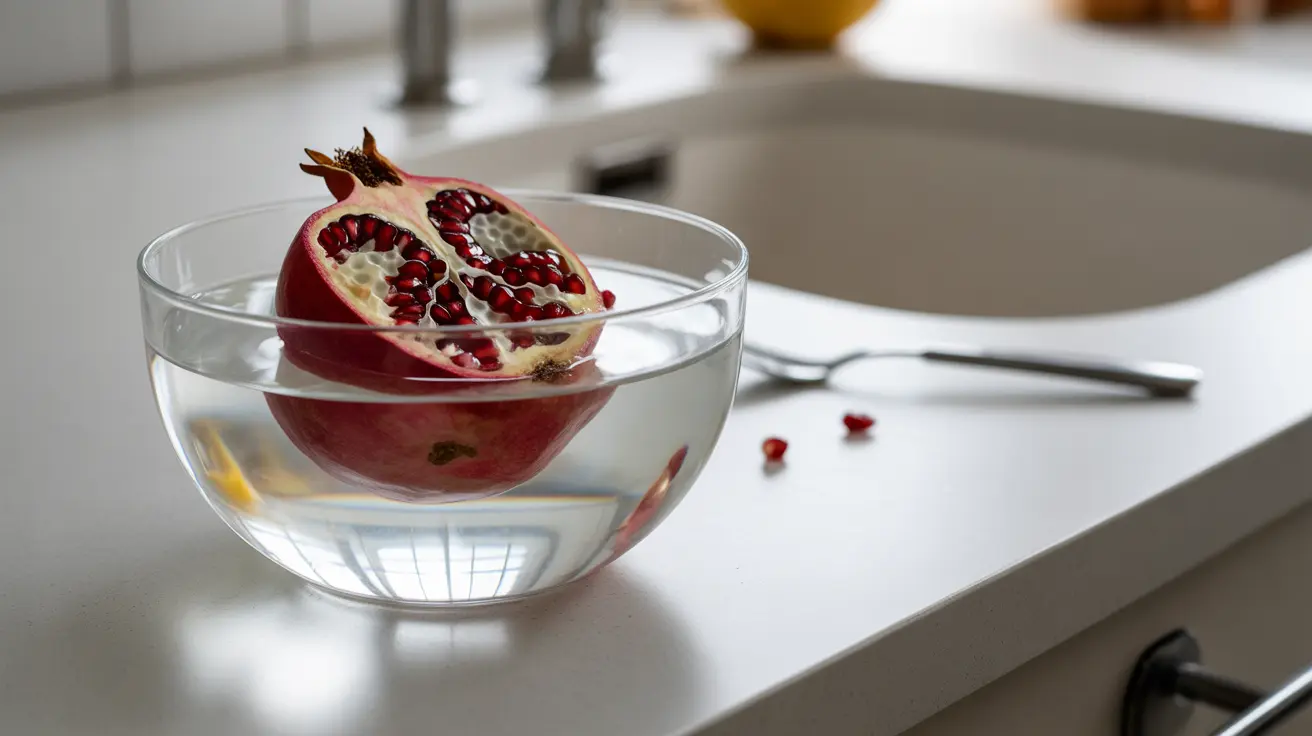Pomegranates are known for their vibrant red seeds (arils) nestled within their distinctive outer shell. Many people wonder whether these seeds are entirely edible and how to best enjoy them. This comprehensive guide will explore everything you need to know about consuming pomegranate seeds safely and maximizing their nutritional benefits.
Understanding Pomegranate Seeds
Pomegranate seeds consist of two parts: the juicy, red outer covering (aril) and the small, crunchy white seed inside. These seeds are not only edible but also pack a powerful nutritional punch, making them a valuable addition to your diet.
The Nutritional Value of Pomegranate Seeds
Pomegranate seeds are rich in essential nutrients that support overall health. They contain high levels of antioxidants, particularly punicalagins, which help fight free radicals in the body. These seeds are also excellent sources of:
- Fiber
- Vitamin C
- Vitamin K
- Potassium
- Folate
How to Extract and Eat Pomegranate Seeds
The Water Method
One of the easiest ways to remove pomegranate seeds is using the water method:
- Cut the pomegranate in half
- Submerge the halves in a bowl of water
- Gently break apart the fruit underwater
- Let the seeds sink while the white membrane floats
- Strain and collect the seeds
Ways to Enjoy Pomegranate Seeds
There are numerous delicious ways to incorporate pomegranate seeds into your diet:
- Add them to salads
- Sprinkle over yogurt or oatmeal
- Blend into smoothies
- Use as a garnish for desserts
- Eat them plain as a healthy snack
Safety Considerations
While pomegranate seeds are generally safe for most people, there are some important considerations to keep in mind. Those taking certain medications, particularly blood thinners, should consult their healthcare provider before consuming pomegranates regularly.
Frequently Asked Questions
Can you eat the whole pomegranate seed (aril), including the crunchy seed inside?
Yes, you can safely eat both the juicy red aril and the crunchy white seed inside. The entire seed is not only edible but also provides additional fiber and beneficial compounds. Some people prefer to spit out the hard inner seed, but it's completely safe to consume.
What are the health benefits of eating pomegranate seeds?
Pomegranate seeds offer numerous health benefits, including powerful antioxidant properties, anti-inflammatory effects, and support for heart health. They're rich in fiber, vitamins, and minerals, and may help improve digestion, boost immunity, and promote healthy skin.
How do you easily extract and prepare pomegranate seeds to eat?
The easiest method is the water technique, where you break apart the pomegranate underwater to separate the seeds from the membrane. You can also score the fruit into sections and gently pull them apart, or tap the back of the fruit with a wooden spoon to release the seeds.
Are pomegranate seeds safe for everyone, and are there any risks or allergies to be aware of?
While pomegranate seeds are generally safe, some people may be allergic to them. Those with pomegranate allergies should avoid consumption. People with digestive sensitivities might find the hard inner seeds difficult to digest. It's always best to start with small amounts if you're trying them for the first time.
Can eating pomegranate seeds interact with medications like blood pressure drugs?
Yes, pomegranate seeds can interact with certain medications, particularly blood pressure medications and blood thinners like warfarin. The fruit can also affect how your body processes some medications. Always consult your healthcare provider about potential interactions if you're taking any medications.




